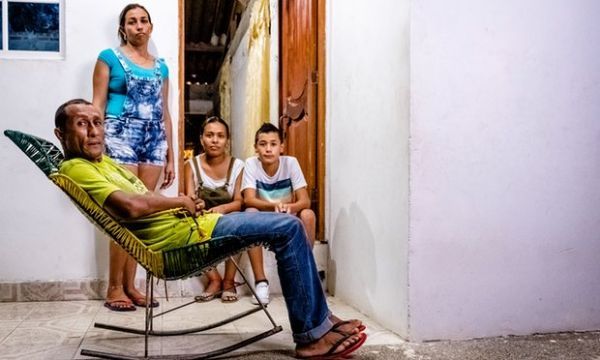Pulitzer Center grantee Dara Mohammadi has been selected as one of five winners of the 2016 “Next Generation of Science Journalists” Award for his article, “Huntington’s Disease: The New Gene Therapy that Sufferers Cannot Afford.” This award, which recognizes promising young science reporters, is sponsored by the World Health Summit, the European Union of Science Journalists’ Associations, German newspaper Deutsches Ärzteblatt, and the Pulitzer Center.
Mohammadi wrote the article, published by The Guardian in May 2016, as part of his Pulitzer Center-supported project “Huntington’s Disease in Latin America.” Colombia and Venezuela have some of the world’s highest rates of Huntington’s Disease, a hereditary neurological disorder that slowly destroys victims’ motor skills. From 1978 to 2002, American researchers collected DNA samples from Huntington’s patients living on the shores of Venezuela’s Lake Maracaibo.
Researchers used these samples to pinpoint the gene responsible for the disease, and drug companies are now on the brink of developing various types of treatment for Huntington’s. But these treatments are likely to be prohibitively expensive for the impoverished Huntington’s patients that Mohammadi visited in South America. Several of the Colombians that Dara interviewed see this as a grave injustice.
For instance, one doctor in Bogota told him, “I’m worried that drug companies haven’t reached a sense of consciousness about the communities that live in developing countries. The people who contributed to what is the basis of all these gene therapies–does anyone have a plan in place to make these drugs available to them? How are people who don’t even have food to eat going to get support from their government to access any of these new gene therapies if they work?”
Mohammadi’s coverage of this troubling situation caught the attention of the award’s judges, who aim to "support the recognition of emerging young medical science journalists and their contribution towards public understanding of science.” He will receive the award with the other winners in October at the World Health Summit in Berlin.
Read more about the World Health Summit’s “Next Generation of Science Journalists” Award.
